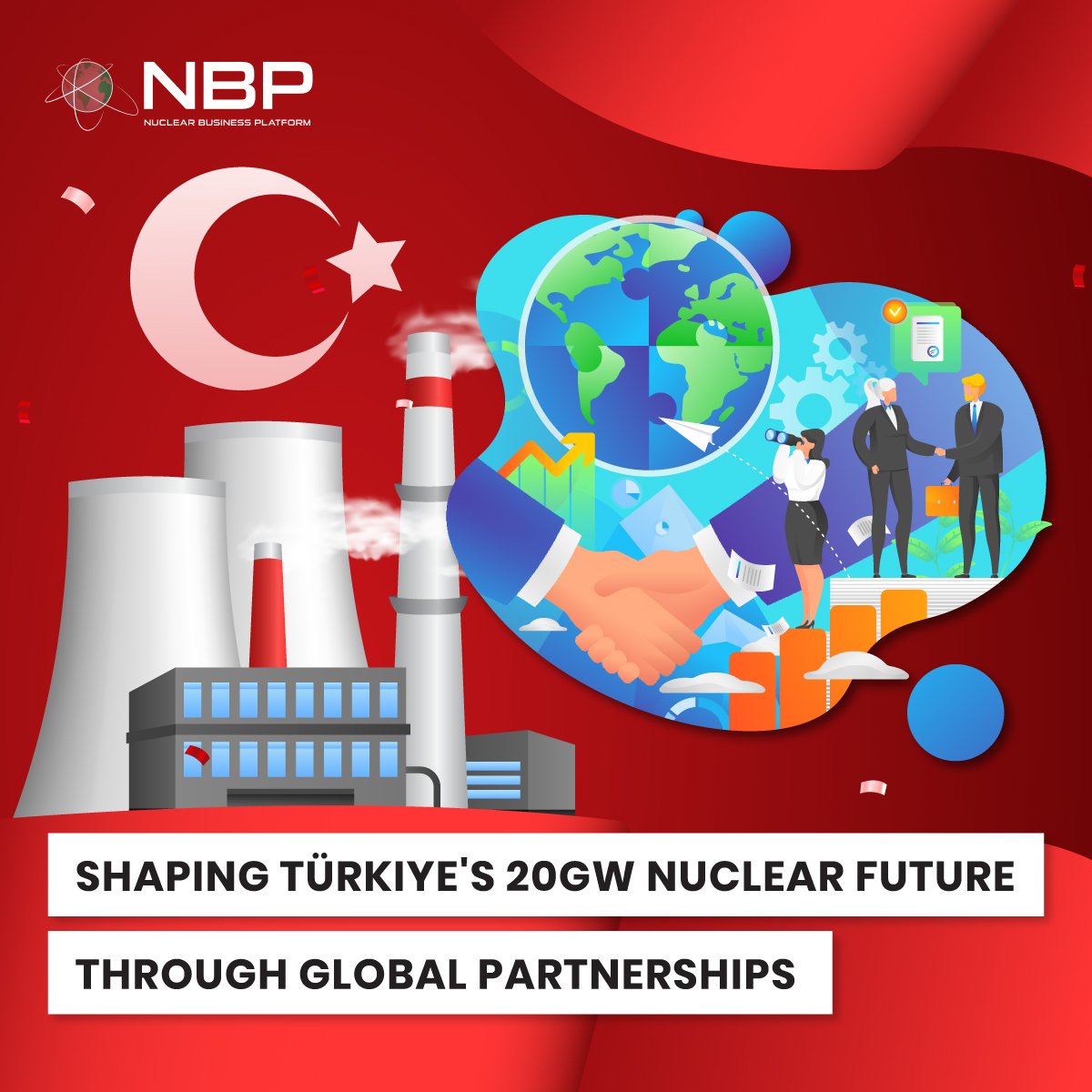Shaping Türkiye's 20GW Nuclear Future Through Global Partnerships
Türkiye's goal to achieve 20 GW of nuclear power capacity by 2050 has garnered significant interest from international nuclear powerhouses. The country's strategy involves a mix of large-scale nuclear power plants and small modular reactors (SMRs), reflecting its desire for a diverse and secure energy future. Key players like Russia, China, South Korea, the United States, and the UK are vying for substantial roles in Türkiye’s nuclear projects, each contributing unique technologies and partnerships.
China
China’s State Power Investment Corporation (SPIC) has emerged as another critical player in Türkiye's nuclear energy ambitions. In May 2024, Türkiye and China signed a memorandum of understanding (MoU) focusing on energy transition, which included nuclear energy cooperation. Talks with China regarding the construction of the third nuclear power plant in the Thrace region, known for its high energy demand, are in their final stages.
SPIC’s advanced CAP1400 reactors, which boast enhanced safety features and efficiency, are expected to power the Thrace plant. With a planned capacity of around 4,000 MW, this plant will significantly contribute to Türkiye’s nuclear energy mix and will play a critical role in diversifying its energy sources. Like Russia, China’s partnership also includes the training of Turkish personnel, ensuring that local expertise is developed alongside infrastructure.
China’s experience with large-scale nuclear projects in other countries, such as Pakistan and Argentina, as well as its rapidly advancing nuclear technology, positions it as a strategic partner for Türkiye’s energy future.
South Korea
South Korea’s Korea Electric Power Corporation (KEPCO) is heavily involved in Türkiye’s nuclear power strategy, specifically vying for the contract to build the Sinop nuclear power plant. KEPCO has proposed using its APR1400 reactors, which are renowned for their reliability and efficiency. The project is estimated at $30 billion and would make a significant impact on Türkiye’s energy landscape.
While Russia currently leads the bid for the Sinop project, KEPCO’s strong technical expertise and proven track record in large-scale nuclear projects, such as the Barakah Nuclear Power Plant in the UAE, make it a serious competitor. South Korea’s involvement would bring advanced reactor designs and extensive experience to the Turkish market, further enhancing Türkiye’s nuclear portfolio.
Russia
Russia, through its state-owned nuclear energy corporation, Rosatom, plays a dominant role in Türkiye’s nuclear energy development, primarily through the Akkuyu Nuclear Power Plant. This $20 billion project is a testament to the deep partnership between Türkiye and Russia, aimed at diversifying Türkiye’s energy mix and enhancing its energy security.
Rosatom is responsible for constructing four VVER-1200 reactors at Akkuyu, with the first reactor loaded with nuclear fuel in 2023. The plant is projected to start generating electricity by 2025, with all four reactors operational by 2028. Once fully functional, Akkuyu will contribute approximately 10% of Türkiye’s electricity needs.
Beyond Akkuyu, Rosatom is a strong contender for Türkiye’s second nuclear project in Sinop on the Black Sea coast. Rosatom's experience in both large reactors and SMRs, as well as its commitment to training Turkish personnel, ensures long-term collaboration with Türkiye. Additionally, the BOO (Build-Own-Operate) model employed at Akkuyu guarantees full Russian investment and operational control, streamlining the project while minimizing financial risks for Türkiye.
United States
The United States is becoming a key partner in shaping Türkiye’s nuclear future, with a particular focus on SMRs. Engaged in discussions for both large-scale nuclear projects and SMRs, U.S. companies like Westinghouse Electric Co. are actively involved in negotiations that align with Türkiye's goal of achieving 5 GW of power from SMRs by 2050, as part of its broader nuclear energy ambitions.
The U.S. Export-Import Bank (EXIM) has introduced financing options to support SMR development, underscoring the deepening financial and technological collaboration between the two nations. U.S. companies such as NuScale Power, TerraPower etc. are well-positioned to capitalize on Türkiye’s growing SMR market, which is projected to reach between $10-30 billion by 2050.
United Kingdom
The United Kingdom, primarily through Rolls-Royce, is another key player in Türkiye’s nuclear landscape, particularly in the realm of SMRs. Rolls-Royce has signed an MoU with Türkiye to explore the feasibility of deploying its SMR technology.
In September 2023, Türkiye’s Energy Minister met with Rolls-Royce representatives to discuss collaboration on SMR deployment. Rolls-Royce’s reactor design, with a projected output of 400–450 MWe, could play a critical role in helping Türkiye achieve its 5 GW SMR target by 2050. The UK’s extensive experience in nuclear technology and commitment to innovation makes it a strategic partner for Türkiye as it diversifies its nuclear energy portfolio.
In addition to the major players already involved, countries like France, Canada, and Japan have shown interest in Türkiye's nuclear ambitions. Their extensive nuclear expertise and innovative technologies could further enhance Türkiye’s nuclear capacity and strengthen international collaborations.
As Türkiye embarks on its nuclear journey, the participation of these global players highlights the importance of international cooperation in achieving energy security and sustainability. With robust partnerships, Türkiye is well-positioned to become a leader in nuclear energy, contributing significantly to its 20 GW nuclear target by 2050.



